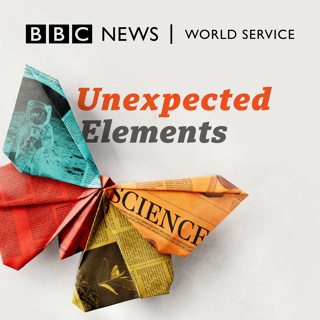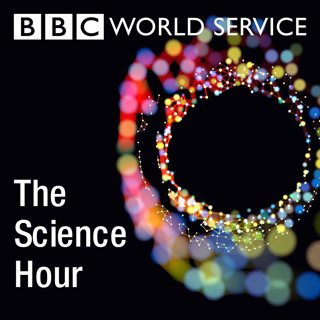
Forgetful fish, telescopic worms and bad air days
In a week where global heat records have melted, we find out how that can make fish life-threateningly stupid. We also dive a little deeper to find the part of the ocean where a little heat proves life-enhancing.And we bring you boring science… no, not in that way. Find out what tree rings can tell us about ancient civilizations and past climates. Also, a new Japanese mission aims to park nice and neatly on the moon – how different is that from the famous first effort from the Apollo 11 team? We hear about an unwelcome Delhi resident that’s taking years off locals lives – air pollution. And what is a “supervolcano” and how likely is it that one ruins our run as dominant species on this planet?Presented by Marnie Chesterton With Chhavi Sachdev and Tristan AhtoneProducers: Alex Mansfield, Ben Motley, Sophie Ormiston, Emily Bird and Patrick Hughes
14 Sep 202350min

Zombies, cows and coups
Following recent coups in Niger and Gabon, and with seven African coups in the last three years, some political commentators are suggesting that there might be an epidemic of coups. But are coups really contagious, and what does the political science say? Caroline Steel and the Unexpected Elements team across three different continents go on a quest to find the science lurking behind the news.We find out what trees in Chile can tell us about coups and we meet the wasp that performs a coup on a poor unsuspecting cockroach, turning it into a zombie and eating it alive. There’s light relief in the form of cows listening to classical music, the answer to a listener question about carbon capture and reflections on efforts to rid the world of plastic bags.All that plus your emails, whatsapps, and more fruit chat than you can shake a banana skin at.Presented by Caroline SteelProduced by Ben Motley, with Margaret Sessa Hawkins and Sophie Ormiston
7 Sep 202353min

Protecting the Moon
India's successful moon landing has the Unexpected Elements team engaging in some serious lunacy. We look at where the moon even came from, how it helps us navigate, and whether it has a cultural and ecological heritage.Also on the show, is Dr. TikTok leading to a raft of self-diagnoses, should we be eating banana peels and worms, and we go back to the moon to see if it has any effect on our sleep.
31 Aug 202350min

The man who couldn’t lie
This week, we start off by digging into conspiracy theories. What’s behind their enduring allure? And have they always been around? Marnie and the panel investigate. Many conspiracy theories are based off of misinformation… but what’s actually going on in our brains when we lie? We look into the case of the man who was physically unable of spreading tall tales. Sometimes, the truth is there, but is difficult to uncover. Delving for this deeper meaning is something particle physicists like Dr Harry Cliff have been doing for decades. Harry tells us where we are in the ongoing quest to understand our Universe. Also, we hear the ingenious way Costa Rican scientists are dealing with pineapple waste, and we answer a South African listener’s question about evolution. Presenter: Marnie Chesterton Producer: Sophie Ormiston, with Margaret Sessa Hawkins and Alex Mansfield
24 Aug 202350min

Corrupted thinking and cancerous co-option
The conversation this week starts off on corruption. There are allegations of political or corporate malfeasance in the news regularly throughout the world. But can science bring anything to the investigators? We look at some efforts to bring empirical rigour to the fight. But corruption of sorts is also a big thing in our online lives. Algorithms can deliver duff results, maybe because they are poorly conceived, or perhaps because they are fed corrupt data. So when our cellular biological algorithms are corrupted, our health is affected. Can cancerous tumours be considered corrupt organs, co-opting healthy cells to assist in their nefarious ends? Dr Ilaria Malanchi of the Crick Institute in London muses on the commonalities. Also, a look at the politicisation of pre-human palaeontology and how our stories of human origins have been, and in some ways still are, connected with nationalist geographical identities that mainstream science doesn't recognize. Presenter: Caroline Steel, with Yangyang Chen and Meral Jamal Producer: Alex Mansfield, with Margaret Sessa Hawkins, Ben Motley, and Sophie Ormiston
17 Aug 202350min

Some of our universe is missing
This week on the show that looks for the science behind the news, Marnie Chesterton investigates mystery after mystery. Where is Yevegeny Prigozhin, the leader of the Wagner Group, and could science help to trace him? Which animals would do best at a game of hide and seek? And we hear about the time when half the stuff in the universe went missing, and how cosmologists found it again. We continue our endless quest to identify the Coolest Science in the World. This week’s contender studies the murky side of the genome – dark DNA. Plus the low-down on the indefinite doctor’s strike in Nigeria, we look behind the latest news about our warming oceans and have you ever felt someone else’s pain? You might be the 1 in 50 people known as mirror touch synaesthetes.All that plus your emails, whatsapps and even more fruit chat.Presented by Marnie Chesterton Produced by Ben Motley, with Margaret Sessa Hawkins, Alex Mansfield, Sophie Ormiston, Katie Tomsett and Florence Thompson.
10 Aug 202353min

The World Cup and hallucinogenic bananas
The World Cup has us looking at why women get more ACL injuries, how to avoid cracking under pressure, and why some animals play dead. Also on the program we consider the pros and cons of Artificial Intelligence in Africa, whether the continent is turning to nuclear power, and if banana skins are hallucinogenic.
3 Aug 202350min

Password1234#Invisibility&Moonshot
As Netflix cracks down on password sharing around the world - something it once encouraged - we wondered why people like to share passwords to other things, such as phones, email accounts and logins. Passwords and encryption exist as ways of protecting us from hostile agents in most aspects of life. But timing is everything. Nature has been doing it for years of course. But climate change is upsetting some of the ecological match-ups of locks and keys, migration and feeding that have evolved over the millennia. We hear how the shifting patterns of weather and food availability is affecting cuckoos in Europe and India. Another aspect of natural subterfuge is camouflage. Whilst physicists have been trying to make optical invisibility cloaks from ingenious new "metamaterials", Marc Holderied and team have been looking at how certain moths have used metamaterial properties in the structure of their wings to effectively hide from bats. They are acoustically invisible. Could similar materials be manufactured to make, for example, sound-proof wallpaper?Also, we hear how India's Chandrayaan-3 moon mission - due to land on 23 August this year - is exciting millions of people.Presenter: Marnie Chesterton Producer: Alex Mansfield, with Margaret Sessa-Hawkins, Ben Motley and Sophie Ormiston
27 Juli 202350min





















